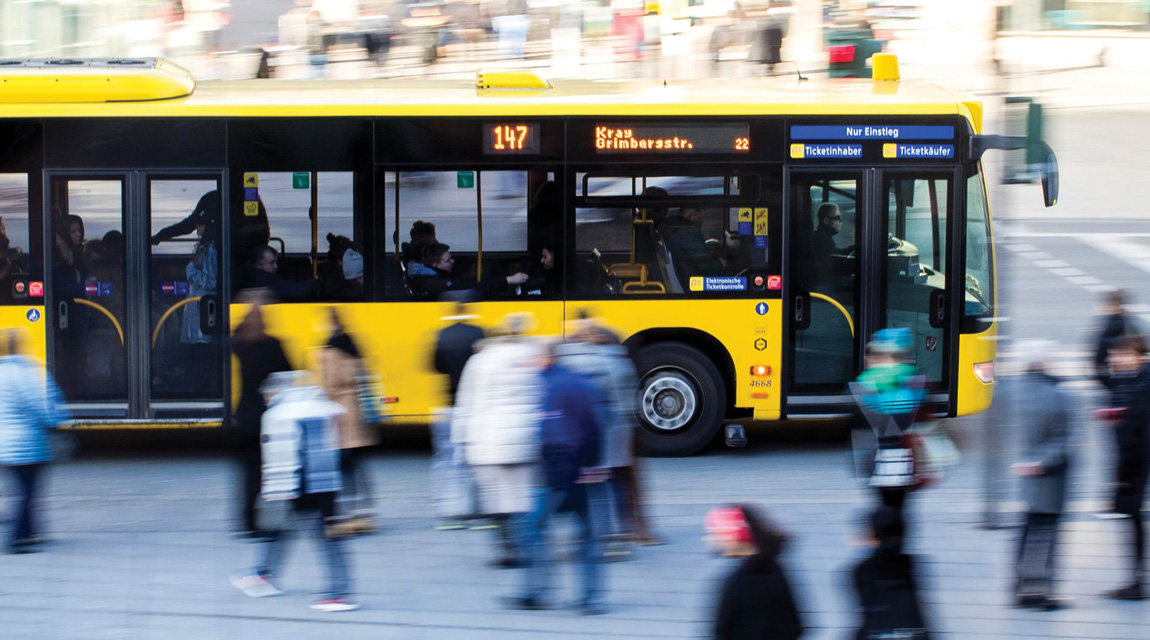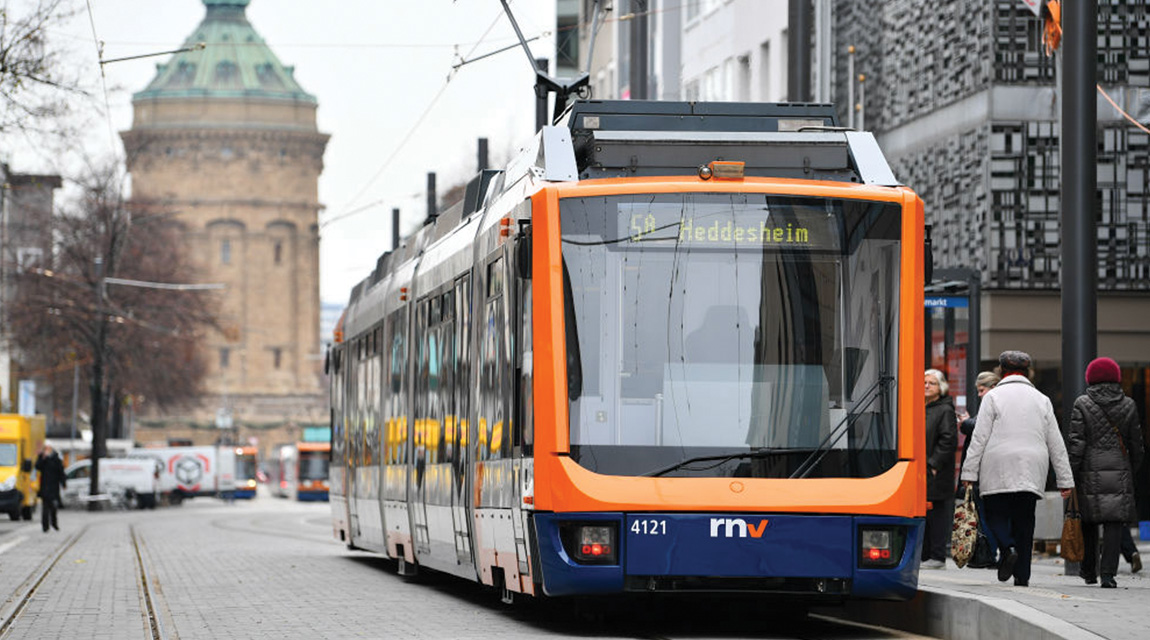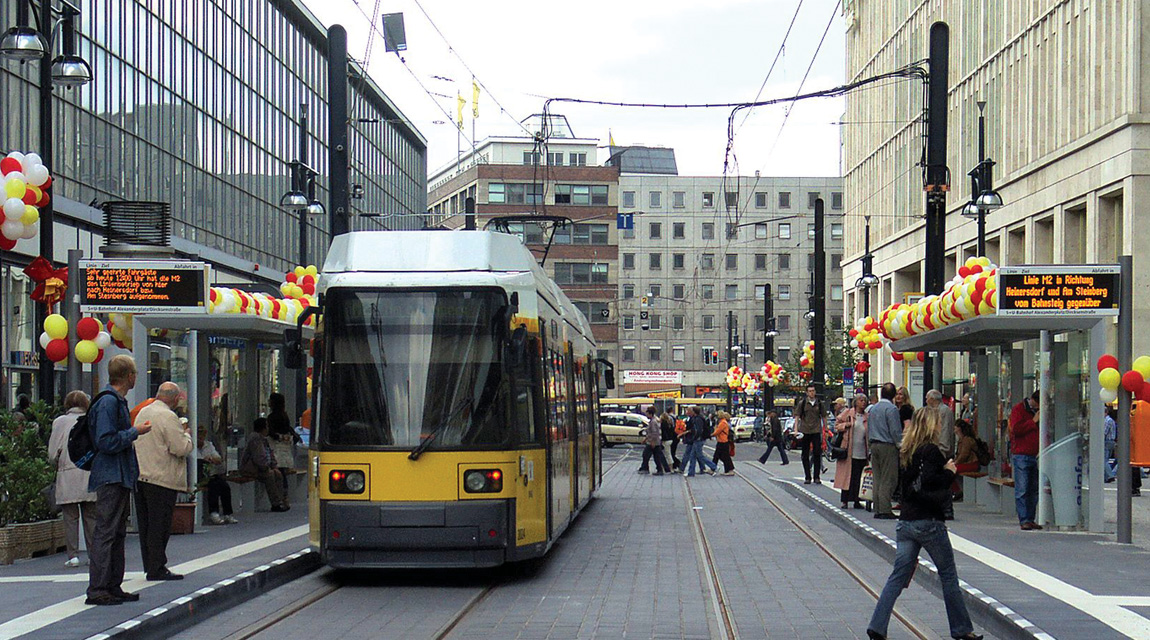Germany transports for free!

The German government hopes to reduce air pollution by cutting the number of private vehicles on the roads and implementing free public transport. WILLIAM GEORGE reports.
As is the case in South Africa, public transport is one of the most used modes of transport in Germany. It is estimated that more than ten-billion journeys were made last year.
The four popular modes of public transport in Germany include the rapid-transit system operating above and below ground, buses, tramlines and taxis.
Germany is known as a “car nation” – the country has produced over five-million cars each year since 2010. Last year, the country produced 5,65-million passenger vehicles.
However, the German government hopes to convince more people to switch from private vehicles to public transport. In fact, in February it declared its decision to test free public transport in a letter to European Union (EU) officials.
Reducing air pollution to avoid fines
Essen, Mannheim, Herringen, Reutlingen and Bonn, the former capital of Germany, are the five cities that have been chosen to start implementing free public transport in order to curb emissions. The country also wants to avoid paying pollution-related fines.
According to Deutsche Welle, Germany’s public international broadcaster, the EU has set the limit for nitrogen dioxide (NO2) at an average of 40 micrograms per cubic metre per year. However, Germany has continued
to exceed that limit, especially in high-traffic cities like Berlin.
The move comes after Berlin, the capital city of Germany, continued breaching limits set by the executive branch of the EU, the European Commission (EC).
The EC estimates that 400 000 people die every year as a result of airborne pollution.

Members of the EU – including France, Germany, Britain, Spain, Hungary, Italy, the Czech Republic, Slovakia and Romania – were summoned to a “last chance” meeting by Karmenu Vella, European Commissioner for Environment, Maritime Affairs and Fisheries. The meeting was held in February in Brussels, where Vella offered members of the EU a last opportunity to propose plans to tackle air pollution.
According to Agence France-Presse (AFP), Vella urged members to come up with solutions to resolve the “life-threatening air pollution issue” in the EU.
“The EU estimated that air pollution costs it €20 billion (R289 billion) a year in health expenses, but says this could be reduced if member states comply with agreed emission limits,” reports AFP.
Vella advised: “In the face of such outstanding failures, in order to take serious action, the ongoing legal process will continue. I urge all member states to address this life-threatening problem with the urgency it deserves.”
According to Independent Online, the EC has since received proposals from all infringing countries and will be reviewing each case to decide whether infringement procedures should continue. Countries that fail to keep to the EU limits could face legal action at the European Court of Justice, which can levy fines on member states.
How will public transport reduce air pollution?
The Guardian quotes a letter to the EU written by Barbara Hendricks, Environment Minister of Germany, and Christian Schmidt, Agriculture Minister: “We are considering free public transport in order to reduce the number of private vehicles. Effectively fighting air pollution without any further unnecessary delays is of the highest priority for Germany.”
The trial for free public transport in the five cities will begin “at the end of this year, at the latest,” the letter notes.
“The trials will see public buses running on diesel fuel equipped with exhaust-scrubbing systems, more charging points for electric cars, and overall strengthening of electric mobility,” reports Deutsche Welle.

Uncertainty over Germany’s free public transport proposal
However, this is not as easy as it sounds. There are a number of complexities to this proposed system, including funding. The system will require more public transport as commuter numbers increase. The proposed free public transport system will thus need more funding in order to continue to run, as well as to pay the drivers and other staff who will manage the services.
The other issue is the availability of public transport. For people residing in the outskirts of these cities, it will be harder to reach the hubs in which this free public transport is available.
Personal preference is another important consideration. For some people, the price is not the issue, but
rather using a well-developed transport system that will allow flexibility and comfort. Public transport can
be unreliable, which could leave people stranded for hours.
Feasibility of free public transport in South Africa
Vaughan Mostert, former University of Johannesburg lecturer and FOCUS columnist, notes that a system like this would be hard to achieve in South Africa.
“This will only work in South Africa if we utilise the existing transport infrastructure. This will be more cost-effective than investing in new fleets. Buses, minibus taxis and rail must all be integrated. However, South Africa has a long way to go in order to achieve a well-integrated public transport system,” he adds.
There are a few cities with successful free public transport systems, such as the Cheremushki region in Russia, while there are some cities which have been unsuccessful, such as Paris in France. However, we will have to wait and see if the free public transport approach will help resolve the air-pollution issue in German cities.
Published by
Focus on Transport
focusmagsa




